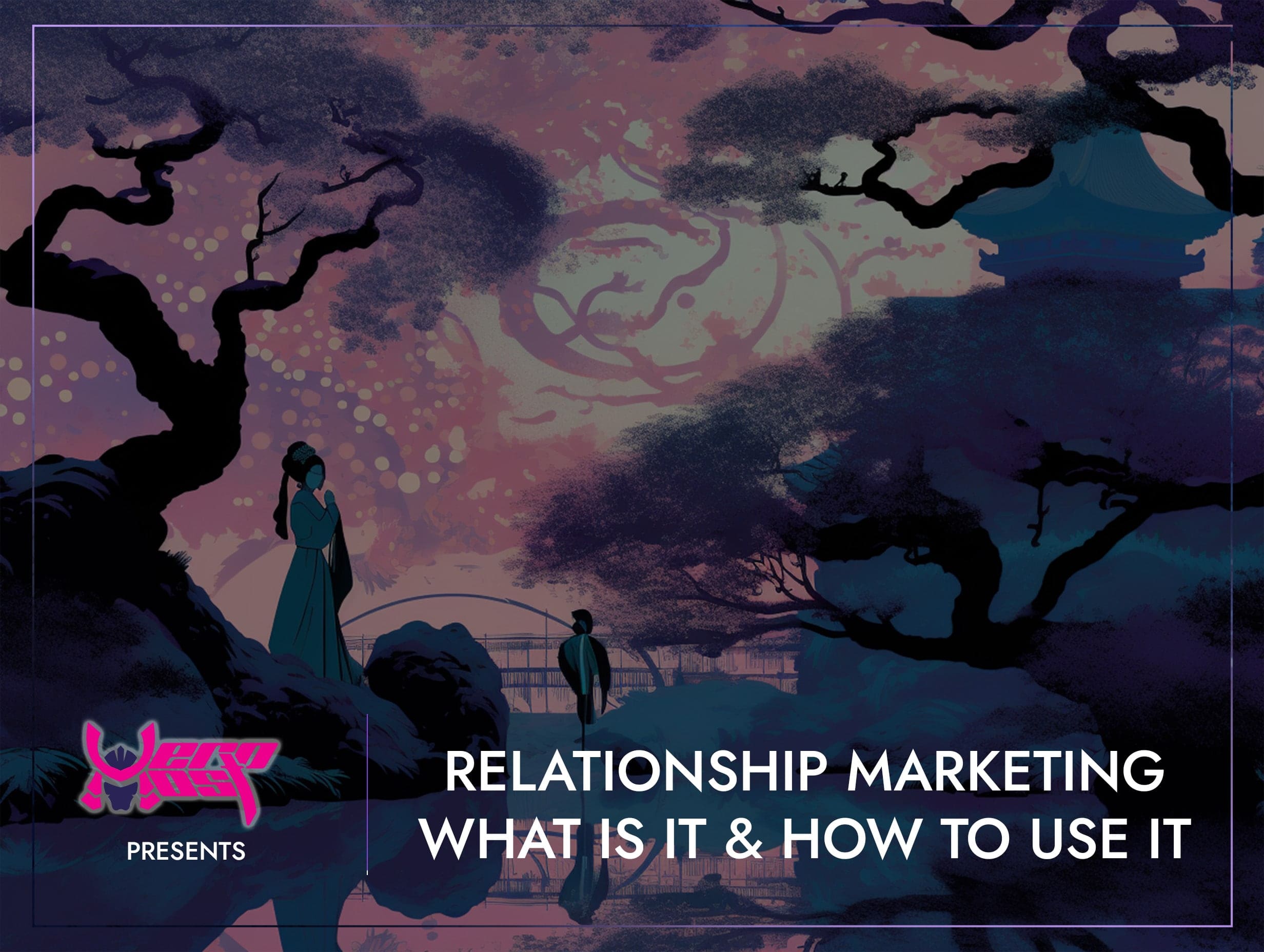A Guide To Customer Relationship Management
- Home
- Marketing Guides
- A Guide To Customer Relationship Management

- Mikey Ryu
- May 6, 2024
- 0
A Guide To Customer Relationship Management
In today’s hyper-connected and fiercely competitive business landscape, mastering Customer Relationship Management (CRM) is not just a strategic advantage—it’s a necessity for sustained success. At the heart of every thriving enterprise lies a robust CRM strategy, built upon a foundation of understanding, engagement, and optimisation. In this comprehensive guide, we embark on a journey to demystify the intricacies of CRM, exploring its fundamental principles, key components, implementation strategies, and optimisation techniques. From unlocking the power of customer relationships to harnessing the latest technologies and best practices, this guide equips businesses with the knowledge and tools needed to forge stronger connections, drive profitability, and thrive in an ever-evolving marketplace.
Section 1: Understanding Customer Relationship Management
Customer Relationship Management (CRM) stands as the cornerstone of modern business strategies, revolutionising the way companies interact with their clientele. At its core, CRM encapsulates the principles and practices aimed at fostering meaningful connections with customers, thereby driving loyalty, satisfaction, and ultimately, profitability.
In essence, CRM revolves around understanding and fulfilling the needs and preferences of customers at every touchpoint. It entails capturing, analysing, and leveraging data to tailor personalised experiences, anticipate future demands, and nurture long-term relationships. By comprehending the fundamental principles of CRM, businesses can unlock a treasure trove of opportunities for growth and success.
Section 2: Key Components of CRM
A robust CRM system comprises several key components, each playing a pivotal role in orchestrating seamless interactions and delivering exceptional customer experiences. These components include:
Data Management:
Central to CRM is the effective collection, organisation, and management of customer data. From basic contact information to purchase history and behavioural patterns, businesses must harness data insights to gain a comprehensive understanding of their clientele.
Customer Engagement Tools:
CRM platforms offer a suite of tools designed to facilitate meaningful interactions with customers across various channels. From email marketing and social media management to live chat and personalised messaging, these tools empower businesses to engage with customers in real-time and at scale.
Analytics and Reporting:
Analytics capabilities enable businesses to derive actionable insights from customer data, empowering informed decision-making and strategic planning. By analysing trends, identifying patterns, and measuring key performance indicators (KPIs), businesses can continuously optimise their CRM strategies for maximum effectiveness.
Automation:
Automation features streamline repetitive tasks and workflows, allowing businesses to focus their time and resources on high-value activities. From lead nurturing and follow-up reminders to workflow automation and campaign management, automation enhances efficiency and productivity within CRM systems.
Section 3: Implementing CRM in Your Business
Successfully implementing CRM in your business requires careful planning, strategic alignment, and organisational buy-in. Here are the essential steps to integrate CRM into your business operations:
Define Objectives:
Clearly outline your CRM objectives and goals, ensuring alignment with your overall business strategy. Whether it’s increasing customer retention, improving sales efficiency, or enhancing marketing effectiveness, define measurable outcomes to gauge success.
Select the Right CRM Solution:
Evaluate and select a CRM solution that aligns with your business requirements, budget, and scalability. Consider factors such as features, customisation options, integration capabilities, and user-friendliness when choosing a CRM platform.
Data Migration and Integration:
Seamlessly migrate existing data into your CRM system and integrate it with other business applications and systems. Ensure data integrity, accuracy, and consistency throughout the migration process to avoid disruptions and discrepancies.
Training and Adoption:
Provide comprehensive training and support to employees to ensure successful adoption and utilisation of the CRM system. Empower users with the knowledge and skills needed to leverage CRM tools effectively in their daily workflows.
Continuous Improvement: Implement a culture of continuous improvement, regularly reviewing and refining your CRM strategy based on feedback, insights, and performance metrics. Stay agile and adaptable, embracing change and innovation to drive ongoing success.
Section 4: Optimising CRM for Success
To optimise CRM for success, businesses must adopt a proactive approach focused on maximising value and driving results. Here are some strategies to enhance and optimise your CRM initiatives:
Personalisation:
Leverage customer data and insights to deliver personalised experiences tailored to individual preferences, behaviours, and needs. From personalised marketing campaigns to customised product recommendations, personalisation fosters stronger connections and enhances customer satisfaction.
Integration and Automation:
Integrate CRM with other business systems and applications to create a unified ecosystem that streamlines processes and enhances efficiency. Leverage automation to automate repetitive tasks, workflows, and communications, freeing up time for more strategic activities.
Customer Feedback and Engagement:
Actively solicit feedback from customers through surveys, reviews, and feedback loops to gain valuable insights into their experiences and preferences. Use this feedback to refine products, services, and processes, demonstrating your commitment to customer satisfaction and continuous improvement.
Analytics and Insights:
Harness the power of analytics and reporting to derive actionable insights from customer data and performance metrics. Identify trends, patterns, and opportunities for optimisation, enabling data-driven decision-making and strategic planning.
Agile and Adaptive:
Stay agile and adaptive in response to changing market dynamics, customer needs, and technological advancements. Continuously innovate and iterate your CRM strategy to stay ahead of the curve and maintain a competitive edge in the marketplace.
As we conclude our exploration of Customer Relationship Management (CRM), it becomes evident that nurturing meaningful connections with customers is not just a business imperative—it’s an art form. From understanding the fundamental principles to implementing strategic initiatives and optimising for success, CRM serves as the cornerstone of modern business strategies. By embracing CRM as more than just a technology solution but as a strategic imperative, businesses can cultivate lasting relationships, drive sustainable growth, and position themselves as industry leaders in today’s dynamic marketplace. Armed with the insights and strategies shared in this guide, businesses are empowered to unlock the full potential of their customer relationships and embark on a transformative journey towards long-term success.
Search
Categorys
- Branding (12)
- Business Growth Guides (3)
- Business Insights (3)
- Content Marketing (43)
- Domain Authority (19)
- Email Marketing (28)
- Google Analytics & Search Console (5)
- Hack or Not (2)
- Hero Host News (0)
- Inbound Marketing (32)
- Lessons From Asia (40)
- Marketing Guides (11)
- Martial Arts Journey (14)
- Outbound Marketing (8)
- Search Engine Optimisation (SEO) (41)
- Social Media Marketing (38)
- Web Design (20)
- Website Hosting (4)
- Wordpress (2)






